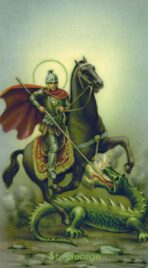We ask you, humbly: don't scroll away.
Hi readers, it seems you use Catholic Online a lot; that's great! It's a little awkward to ask, but we need your help. If you have already donated, we sincerely thank you. We're not salespeople, but we depend on donations averaging $14.76 and fewer than 1% of readers give. If you donate just $5.00, the price of your coffee, Catholic Online School could keep thriving. Thank you.Help Now >
The Grammar of the Natural Law for All and the Folly of the Cross for Christians
FREE Catholic Classes
Pope Benedict XVI's apostolic journey to Lebanon is now complete. Let us hope that it bears fruit. Pope Benedict apostolic journey had two audiences: the people of Lebanon generally--which would include the significant Muslim population--and the Christian faithful in Lebanon. Pope Benedict XVI's message was therefore two-pronged.
Highlights
Catholic Online (https://www.catholic.org)
9/18/2012 (1 decade ago)
Published in Middle East
Keywords: Lebanon, Pope Benedict XVI, peace, natural law, grammar of natural law
CORPUS CHRISTI, TX (Catholic Online) - Pope Benedict XVI's apostolic journey to Lebanon is now complete. Let us hope that it bears fruit.
Pope Benedict XVI's apostolic journey had two audiences: the people of Lebanon generally--which would include the significant Muslim population--and the Christian faithful in Lebanon. Pope Benedict XVI's message was therefore two-pronged.
The first message was aimed at the entire population of Lebanon, and it may be best summarized in the Pope's address to the assembled government and religious leaders at the Baabda Presidential Palace. The essential message was peace. He expressed the hope that Lebanon may become for the world "an example," a "witness" that "every man and woman has the possibility of concretely realizing his or her longing for peace and reconciliation."
Peace, not violence, is "part of God's eternal plan," and it is "impressed . . . deep within the human heart."
In invoking the "eternal plan" of God as found "deep within the human heart," Pope Benedict XVI is referencing the natural moral law which is found in human nature and which is nothing less than the way human beings participate in the eternal law of God. It is something that is found within us and is something that can be accessed by reason without necessarily having to have recourse to revelation.
The Pope, of course, knows that what the Christians accept as revealed and what the Muslims accept as revealed are greatly at odds, and so it cannot be the basis of a common life.
What can be the basis of a common life is a unity based upon human nature, a "unity" which is not, however, "uniformity."
One of those areas of "unity" is the desire to build peace, the "first school" of which is the family. Respect for human life--the rejection of violence--is essential for peace. "If we want peace, let us defend life!" This, of course, necessarily means the rejection of any "assault on innocent human life," but, more broadly, also a rejection of "war and terrorism."
All human beings share in a common nature, and this is a great truth which must be recognized. "Wherever the truth of human nature is ignored or denied," the Pope continues, "it becomes impossible to respect that grammar which is the natural law inscribed in the human heart."
It is the natural law, the "grammar" of man which is found in his human nature, which allows men and women of different faiths to speak a common language. It allows human beings who have different world views nevertheless to "coexist," even flourish, in building a common society. Without acknowledgement of the natural law, it "is impossible to build true peace."
Human nature has an "innate yearning for beauty, goodness, and truth." This yearning reflects the fact that we are made in the image of God and so each of us is, in a manner of speaking, "a reflection of the divine." This yearning for beauty, goodness, and truth is "the basis for a sound and correct notion of morality, which is always centered on the person."
The natural law found within our human nature is a corrective to "widespread opinions, the fashions of the moment, or forms of political and religious ideology" which may be false.
There is a clear, if disguised rejection, of any sort of doctrine of jihad. "Thoughts of peace, words of peace, and acts of peace," and not thoughts of jihad, words of jihad, and acts of jihad, are required if any sort of reconciliation and common life is to be expected.
The Pope, of course, encourages dialogue between Christianity and Islam, but he also recognizes that the only basis for such dialogue demands that the participants become "conscious of the existence of values which are common to all great cultures because they are rooted in the nature of the human person."
One of the central aspects of the natural moral law involves religious freedom. "The freedom to profess and practice one's religion without danger to life and liberty must be possible to everyone." Certainly, compulsion in religion is to be rejected, and it follows that the Qur'anic verse of the sword, which advocates the expansion of religion by the sword, is contrary to the natural moral law.
Religious compulsion by civil authority is therefore immoral. But even secular "tolerance" is insufficient. There has to be on the part of civil and political society an "openness to transcendence," an openness which "makes it possible to find answers to their deepest questions about the meaning of life and morally upright conduct," including an openness to the "Truth which is in God."
As distinguished from his message to all peoples of Lebanon, the Pope's message to the Christian faithful does not contradict the "grammar which is the natural law inscribed in the human heart," but infuses it and uplifts it with grace, the grace of the "folly" of the cross.
Pope Benedict XVI's message to Christians is best gleaned from his homily at the Sunday Mass on September 16, held at the Beirut City Center Waterfront.
In his homily, Pope Benedict XVI focused on Christ's question to his disciples as he was going to Jerusalem, where "the central events of our salvation would take place: his crucifixion and resurrection." It was before these pivotal events that Christ asked the question, "Who do you say that I am?" And it received a variety of answers from those who were not his followers.
We ask you, humbly: don't scroll away.
Hi readers, it seems you use Catholic Online a lot; that's great! It's a little awkward to ask, but we need your help. If you have already donated, we sincerely thank you. We're not salespeople, but we depend on donations averaging $14.76 and fewer than 1% of readers give. If you donate just $5.00, the price of your coffee, Catholic Online School could keep thriving. Thank you.Help Now >
This question is asked by Jesus of all of us. Of course, Peter gave the right answer. "You are the Christ." (Mark 8:29) But the Pope knows that not everyone who says, "Lord, Lord" will enter the kingdom of heaven (Matt. 7:21). And similarly, not everyone who says "Christ, Christ."
In response to Peter's confession of faith, Jesus makes it clear that he will suffer, and will die, though he will emerge victorious and rise again. He is not to be understood as a political Messiah. And here, after St. Peter's confession of faith, St. Peter has the temerity to scold Jesus.
It is not only exclaiming "Lord, Lord," or "Christ, Christ," that makes us followers of Jesus. "Following Jesus," the Pope tells his flock, "means taking up one's cross and walking in his footsteps." It is a life of "self-abandonment," a life that is willing to lose itself "for Christ and the Gospel" so as to save it. Only through suffering and death to self are we to enjoy the fruits of the resurrection. This is something beyond the natural law. It is a call to a supernatural way of living.
Here, the Pope's message is also one of peace. The natural law--present in all humans as part of their grammar--yearns for peace. And just as grace builds upon nature, so the faith of Christians builds upon this natural yearning for peace. It is through their imitation of Jesus, that peace has its best chance, especially in a land of religious violence.
"The vocation of the Church and of each Christian is to serve others, as the Lord himself did, freely and impartially. Consequently, in a world where violence constantly leaves behind its grim trail of death and destruction, to serve justice and peace is urgently necessary for building a fraternal society, for building fellowship!"
The homily confirms what Pope Benedict XVI had told the faithful on Friday, September 14, at the Basilica of St. Paul, Harissa:
"It is here and now that we are called to celebrate the victory of love over hate, forgiveness over revenge, service over domination, humility over pride, and unity over division. . . . This is the language of the cross, exalted and glorious! This is the 'folly' of the cross: a folly capable of changing our sufferings into a declaration of love for God and mercy for our neighbor; a folly capable of transforming those who suffer because of their faith and identity into vessels of clay ready to be filled to overflowing by divine gifts more precious than gold (cf. 2 Cor 4:7-18)."
 Hi readers, it seems you use Catholic Online a lot; that's great! It's a little awkward to ask, but we need your help. If you have already donated, we sincerely thank you. We're not salespeople, but we depend on donations averaging $14.76 and fewer than 1% of readers give. If you donate just $5.00, the price of your coffee, Catholic Online School could keep thriving. Thank you. Help Now >
Hi readers, it seems you use Catholic Online a lot; that's great! It's a little awkward to ask, but we need your help. If you have already donated, we sincerely thank you. We're not salespeople, but we depend on donations averaging $14.76 and fewer than 1% of readers give. If you donate just $5.00, the price of your coffee, Catholic Online School could keep thriving. Thank you. Help Now >
-----
Andrew M. Greenwell is an attorney licensed to practice law in Texas, practicing in Corpus Christi, Texas. He is married with three children. He maintains a blog entirely devoted to the natural law called Lex Christianorum. You can contact Andrew at agreenwell@harris-greenwell.com.
---
'Help Give every Student and Teacher FREE resources for a world-class Moral Catholic Education'
Copyright 2021 - Distributed by Catholic Online










 Daily Readings for Tuesday, April 23, 2024
Daily Readings for Tuesday, April 23, 2024 St. George: Saint of the Day for Tuesday, April 23, 2024
St. George: Saint of the Day for Tuesday, April 23, 2024 Prayer After A Surgery: Prayer of the Day for Tuesday, April 23, 2024
Prayer After A Surgery: Prayer of the Day for Tuesday, April 23, 2024

